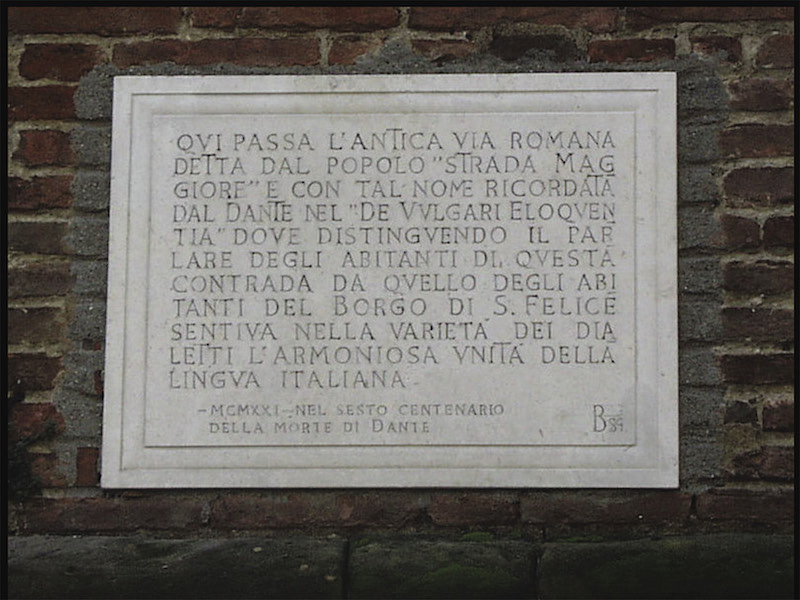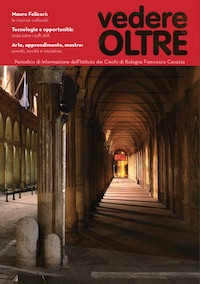In this series of articles, I try to demonstrate aspects of our city's sites which we now know thanks to the research done by people observing and studying the city and the territory from different points of view, making us see things that we missed before. As George Perec wrote in his essay Species of Spaces and Other Pieces: "Space is a doubt: I constantly have to mark it, to designate it, it is never mine, never given to me, I have to conquer it."* The author of the following text has long since disappeared: Dante Alighieri and his De vulgari eloquentia (On eloquence in the vernacular), written in Latin between 1303 and 1305. Dante discussed the relationship between Latin and the vernacular, and the search for an "illustrious" vernacular in Italy and wrote that "Bolognese speak a more beautiful language than most"**. The reason for this affirmation is based on the migration of the populations. Like every student, I read this text as a boy and I still remember my satisfaction when I recognized an acoustic impression on the distribution of the variations of the Bolognese way of speaking.

At the time, my uncle Giorgio was still around. He spoke a dialect I heard he and a few others use. He lived in the heart of the city, on Via Sant'Isaia in that place we called "il Roncati." There was “roundness” to his dialect like that of some old people who strolled around the historical centre and met to bat around on the crescentone (the raised platform in the middle of Piazza Maggiore). Asked about his dialect, my uncle told me that historically one who lived outside the city walls was called "Arioso," not Bolognese.
My curiosity was aimed towards those who did not speak with this so-called "roundness". When I went to my friends' house to study, I felt that the inflections of their parents changed and it reminded me of the languages spoken in the neighbouring areas, upstream or downstream of the outskirts. I recognized a rather rich variety of idioms, all variations of Bolognese but which did not have that roundness. In his De vulgari eloquentia, Dante showed us that the Bolognese dialect is not uniform and that it takes the "soft and smooth" characteristic from the Romagnolo dialect spoken by the Malatestas and a certain harshness that is typical of the Lombards heard in the Este court.
Two commemorative plaques in Via San Felice and Porta Maggiore remind us of the Bolognese used by Dante. They remind us that listening to people speak allows us to outline a finer geography that shows not only the great migrations, but also the smaller ones in the years where people left the countryside. Of course, Bologna has changed so much today, but in my memory, there will always be something that sounds different, with less roundness. Like the city, the language has changed its form.
* Quote from the back cover of George Perec's Species of Spaces and Other Pieces, Bollati Boringhieri, Turin, 1989.
** Quotes from Dante Alighieri are found in the first volume of De vulgari eloquentia (On eloquence in the vernacular), chapter XV, points 2 and 3.





.png)